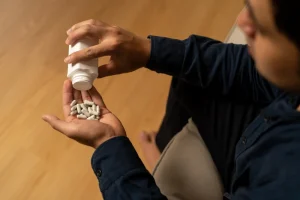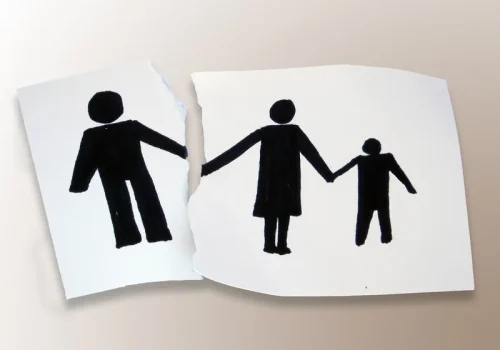
Now think how many of them occurred when one or both of you were under the influence of alcohol. Changes in your personality can cause you to interact differently with the people around you — and not always for the better. Relationships thrive when you can effectively communicate with each other, but it can be hard to do that when you’ve been drinking. Participants also cited high levels of conflict and arguing, another significant contributor to divorce, according to research from 2017.
Alcohol Abuse and Marital Problems

Effective treatments are available, and your provider can advise on next steps. Your provider can prescribe medications that can help people stop drinking and help with symptoms of alcohol withdrawal. They can also recommend treatment programs that may help with detox and recovery. Often people will notice that they are fighting more with their partner when either or both of the individuals have developed an unhealthy relationship with alcohol. Also, if you’re fighting when you are drinking, you may say or do things that you will regret or that you would not do if you were sober.

What to Know About Alcohol and Mental Health

We used the proportion (for each person) of choices where the equal allocation was chosen over the more efficient allocation (pr. equality). In the first task, participants were endowed with 50 SEK (appr. $5) and decided how much of it to keep for themselves and how much to donate to a well-known charity organization (Swedish Heart-Lung Foundation). The second task in this domain was the Balloon Analog Risk Task [BART; [32]], in which participants were presented with a picture of a balloon and could earn money by pumping up the balloon by clicking a button. Each click earned them 0.1 SEK and caused the balloon to incrementally inflate. If the balloon was overinflated, it exploded, and all money earned for that trial was lost.
1. The effects of alcohol use on marital satisfaction
- The MAT provides a total marital satisfaction score that ranges from 2 to 158.
- Although even the strictest accountant or budgeter can make an allowance for entertainment expenses, ongoing drinking can quickly cause people to spend beyond their allotment for socializing.
- Baseline personality traits were obtained using the NEO Five Factor Inventory [NEO-FFI; [38]].
- For studies in which alcoholic couples were compared with nonalcoholic couples, the internal validity of the findings and the ability to make causal inferences are also influenced by the nature and source of the comparison groups (see the “Comparison Group” column in Table 1).
Alcohol can significantly impact the levels of neurotransmitters in your brain, making depression worse. Antidepressants can help even levels of these chemicals effects of alcohol on relationships and can help relieve symptoms of depression. Likewise, if you’re diagnosed with one of these conditions, your doctor may ask about symptoms of the other.

How Alcohol Affects Relationships
When alcohol has become a core part of our relationships, it can stand in the way of us taking action to change our own drinking habits, even when they aren’t making us happy. Similarly, we can be affected by the drinking of our partner, friend or loved one, causing tension and disagreement, or leading us to drink more. Sometimes people drink alcohol to help with the symptoms of stress, anxiety, and depression. Alcohol changes the way your brain cells signal to each other, which can make you feel relaxed.
Alcohol and Children
If so, it may be time to consider how alcohol is impacting your relationship. By taking a closer look, you might find that you or your partner’s drinking habits are at the core of many of your disagreements. Below, learn about the effects of alcohol on relationships, along with six signs that drinking might be impacting yours.
Sobriety Support
Eventually, your brain can adapt to crave alcohol in order to feel good, even despite negative consequences. When someone starts drinking in order to feel happy, their partner may see this change as a reflection on themselves, and internalize that their partner is unhappy in their relationship. If there are underlying issues in the relationship, drinking to feel happy can also prevent these issues from coming to the surface and getting resolved. Below, we offer seven signs that may indicate you and/or your partner’s drinking has become unhealthy.
How Alcohol Can Negatively Affect Relationships
On one hand, this suggests that our findings are unlikely to be primarily driven by expectations, since expectations of alcohol effects are linked to experiencing alcohol in a naturalistic context. At the same time, alcohol effects on decision making under laboratory conditions may differ from those “in the wild”. Similarly, although we make a distinction between personal and social decision making in terms of outcomes, all decisions in our study were taken in private in front of a computer. Thus, future studies could extend our findings by investigating the effects of alcohol on social decisions made in a public setting (e.g., observed by an audience), where social signaling and reputational concerns also come into play. U.S. dietary guidelines define a moderate, low-health-risk alcohol intake as one drink or less per day for women and two or less for men. Aragam co-authored a 2022 study that also found a trend of healthy lifestyle habits among light to moderate drinkers, but concluded nonetheless that any level of alcohol consumption increased the risk of cardiovascular disease.
- Given the strong association between alcohol use and these marital processes, longitudinal studies that evaluate their course over time and their contribution to dissolution are paramount.
- Natural or minimally refined sugars should still be consumed in small amounts and as part of a healthy diet.
- Results indicated that alcoholic and control couples engaged in more negative and more positive behaviors in the drink condition than in the no-drink condition.
- As individuals are often part of social networks, it is easy to understand how alcohol misuse has a ripple effect across a person’s entire network of family, friends, employers, colleagues, and anyone else who depends on the person.
- Perhaps the most common myth about the benefits of alcohol is the idea that an occasional glass of red wine boosts heart health.

